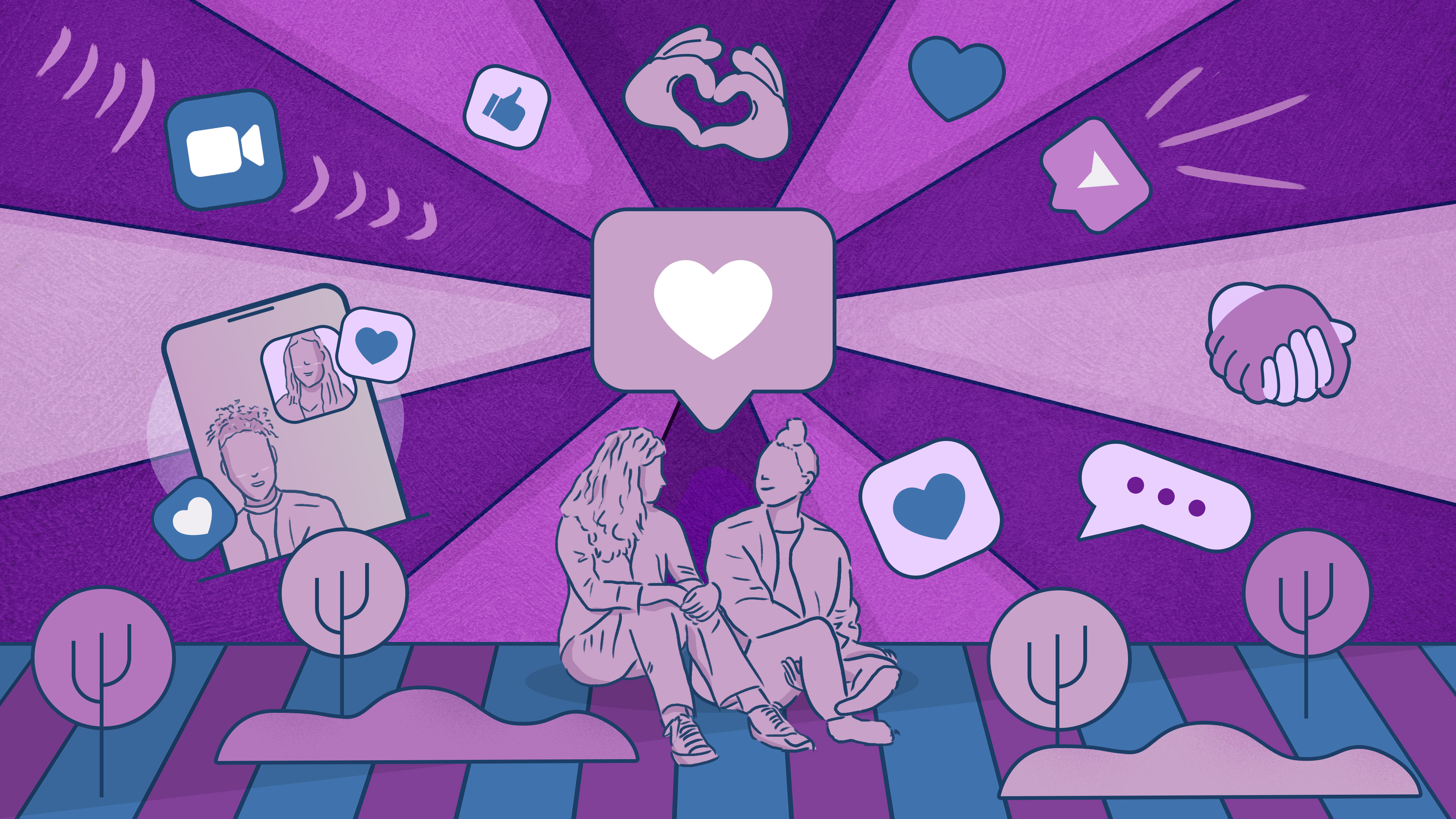We asked reporters in Zimbabwe, Nigeria, Kenya and Namibia to tell us how they navigate the highs and lows of seeking romance, community and friendship online.
Despite all the pitfalls, love calls out to all of us.
Around the world, millions of people celebrate their love publicly and proudly. Yet for so many, the celebration of love is risky. In Africa, 31 out of 54 countries listed homosexuality as a crime punishable by imprisonment in 2024. In some places, the punishment is death. But despite these harsh laws, queer folk are finding love and heartbreak just like everyone else in the 21st century: on dating apps.
https://www.youtube.com/watch?v=jFmc8_akXGY
It’s Complicated, a podcast episode by Radio Workshop, visits Nigeria, where Jonathan and his friends were getting ready to go to Ghana for the queer holiday of their dreams.
Jonathan decided he wanted to do something new, so he signed up for his very first Grindr account.
“Coming to Accra and like seeing them be so free and so open in all of these conversations, it just felt so much like a community,” he says.
This was back in 2019. Ghana was a much less hostile place towards LGBTQI+ people at the time, and for Jonathan it was the perfect place to get a crash course from friends on how to use dating apps. And so, Jonathan embarked on his first queer date from an app.
Dating apps are not available in many African countries, so queer people need to find other ways to meet people online. Like Tanaka, a trans woman from Zimbabwe. She joined a private Facebook group and thought she’d find love there. Tanaka did meet someone, but she didn’t anticipate that the person she was on a date with would entrap her.
Tanaka explains: “That incident happened a while back, and it left a mark on me. But not enough to keep me off the apps. It’s like if a car gets into an accident, you don’t stop driving cars.”
Reuters and Context have both reported on how dating apps in Africa are being used to target LGBTQI+ individuals. And while the threat is real, queer people find ways to protect themselves by staying anonymous on apps. Sometimes they’ll use memes on their profiles instead of photos of themselves, or quotes from books that mean a lot, and only reveal their true identity when they feel safe. When the time comes to meet up with someone, they make sure their friends know where they’re going.
The final two stories in It’s Complicated take us to Kenya and Namibia, where LGBTQI+ rights are increasingly under threat. In Kenya, Kenny met someone on the dating app Romeo. Kenny’s match was in the public eye, and they began a secret relationship that changed his life forever.
In Namibia, a chance encounter on a rainy night brought Whilzahn to social media to pursue her crush, but can an online relationship last offline?
“She looked at me with a big smile on her face. I didn’t want to be too forward, but before I could say anything, she said, ‘I know you’. It felt serendipitous and crazy,” says Whilzahn of her meet-cute in a pub bathroom.
Meeting people online has become the go-to way to date all over the world. But in Africa, when you add being LGBTQI+ to the mix, it’s no longer as simple as setting up a profile and swiping.
It’s Complicated brings us into what it’s really like for queer folk, who, like many of us, are just looking for a chance to connect. DM
Maverick Life
Love, risk and resilience — how LGBTQI+ Africans navigate dating in a digital world
Dating is complicated, not to mention dating on apps – and for LGBTQI+ folk on the African continent, where many countries criminalise queerness, it’s even more complicated.




